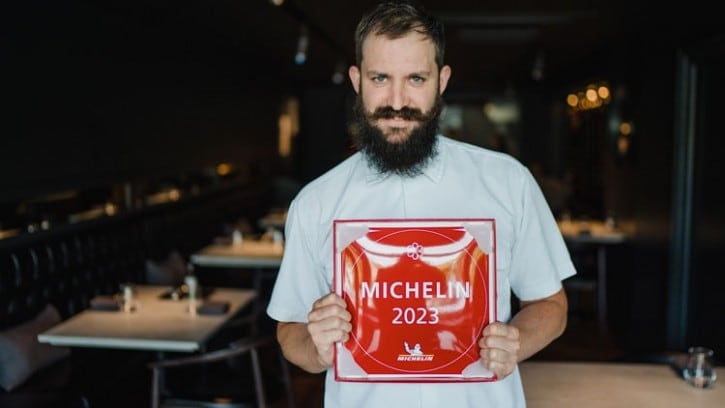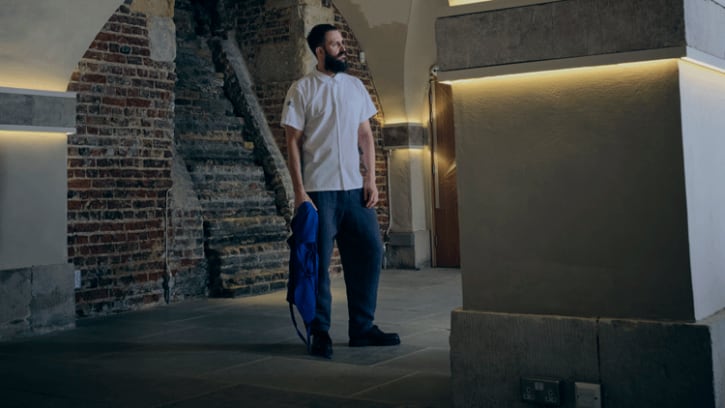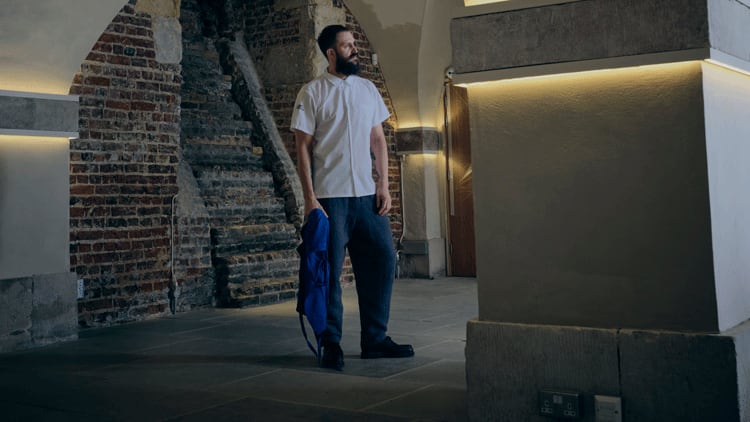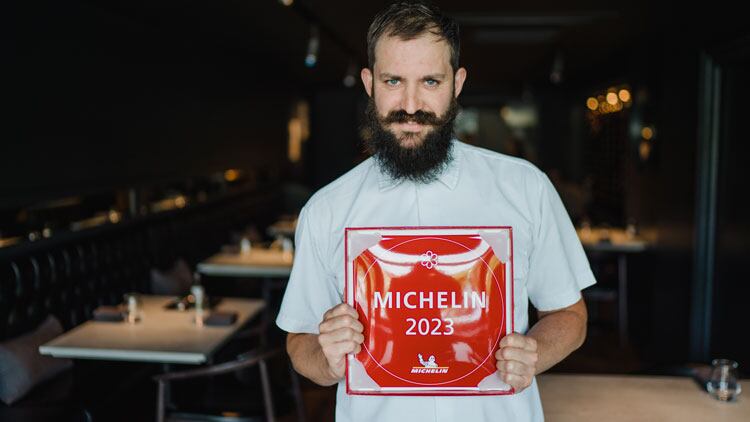You’re finally opening in London…
Yes. Undercroft has been on the cards for quite a long time - I was first approached about it 18 months ago. I made the decision a couple of years back that I wanted to have a presence in London because I love it down there. I love my city, and I’m a Brummie for life, but if you want to put your food to the world then London’s the place to do it.
Tell us about the space
I had done a few different interviews at some London hotels, but I wanted somewhere that I loved and could do something a bit different. Then I was shown this humongous 500-year-old church in middle of Mayfair and I couldn’t believe it. The restaurant will be based in the crypt of the church where the bodies were kept. It’s a beautiful, unique space; I feel very honoured to be able to create something in there, but I also feel the responsibility.
What’s the food offer going to be like?
It will be similar to what I’ve always done but it will be a more modern version of fine dining and a bit more accessible. The menu will be a la carte but there will maybe be a set menu somewhere. I will keep the same level of ingredients I’m known for but I will get to cook for more people, and not with a tasting menu that I’ve been doing for so long.
What about the style of the restaurant?
The best way to describe it is a luxury brasserie. It’s a big space and there are lots of arches and uplighters and brickwork and stone flooring, but we will add some nice furnishing and create quite a few lounge areas. There will also be a big bar area - I’ve got a licence until 3am in a church! The kitchen won’t be fully open because the last thing I want to do is burn down a church. There will be 13 chefs in the kitchen and 15 front of house and I’ve got full creative control; even with things like the music programme I can add my two pennies' worth.
You’re relocating Carters of Moseley in Birmingham. How’s that going?
We’ve finally got a site. I’ve looked at about 250 sites in Birmingham over the last four or five years and it got to a point where I just wanted to get in there, but I’m glad I’ve waited. It’s the perfect location in the perfect building with features that I hadn’t considered. I had been looking a bit further out of town but with what I’m offering now I need to be slap bang in the middle of the city, which is where it is.
Tell us more
It’s quite a big site that was formerly a bank. It will be an 80-cover brasserie on the top floor serving an a la carte menu, similar to what I’m doing in London, and then downstairs there will be a 15-cover chef’s table like Carters is at the moment. As you walk into main floor there is staircase in the middle and seats and a bar around it, and we are trying to get planning permission for a terrace. It’s a different restaurant because fewer people are eating tasting menus so you’ve got to keep reinventing yourself and moving forward. I want to be there a much as possible. I’m not a chef that does just one day a week. It’s the last [restaurant] I’m ever going to do [in Birmingham] so it needs to be the best I’ve ever done.

What was behind the decision to move Carters?
I’d been there 13 or 14 years and felt I had achieved all I could there. I couldn’t develop any more or add to the guest experience. I also wanted to leave it at its peak. I never wanted the restaurant to be a thing that had started to stagnate. Restaurants have a responsibility to keep reinventing themselves so that more people can visit them, and I hate the way that when you go down the fine dining route you start to become too exclusive without realising it. That was never why I started Carters and why I think it’s had its moment.
How different will the London and Birmingham restaurants be?
I want to do create something different for the London scene, that’s my challenge. Everything is there and has been done very well, so to go there and make a bit of a statement, that’s my goal. I want people to be excited to eat there. But what I’m doing in London would definitely work in Birmingham.
How do you regard the current restaurant climate?
It’s challenging. Even chains are struggling but when you get to that top level where you’re asking someone to spend £200 it doesn’t matter whether they can afford it, people are becoming cautious. A good example of a new restaurant doing something different is Mountain. It’s fine dining, there’s no doubt about it, but in a completely accessible way - you can still go there and get a whopping bill but you can also spend £50. That’s where it is going at the moment.
What about Birmingham’s food scene?
It’s amazing, there are some many things going on. People are getting more confident; they see someone else doing something and want to have a go themselves. There are little units across the city getting snapped up with people having a go at what they want to do, which is something we did 13 years ago. It is a diverse scene, but the city is lacking a bit in the middle - that kind of casual restaurant that’s not a chain. I’d like to see St John style food in Birmingham. We’ve got a few Michelin-starred places and that’s all well and good but they definitely don’t define a whole food scene.





